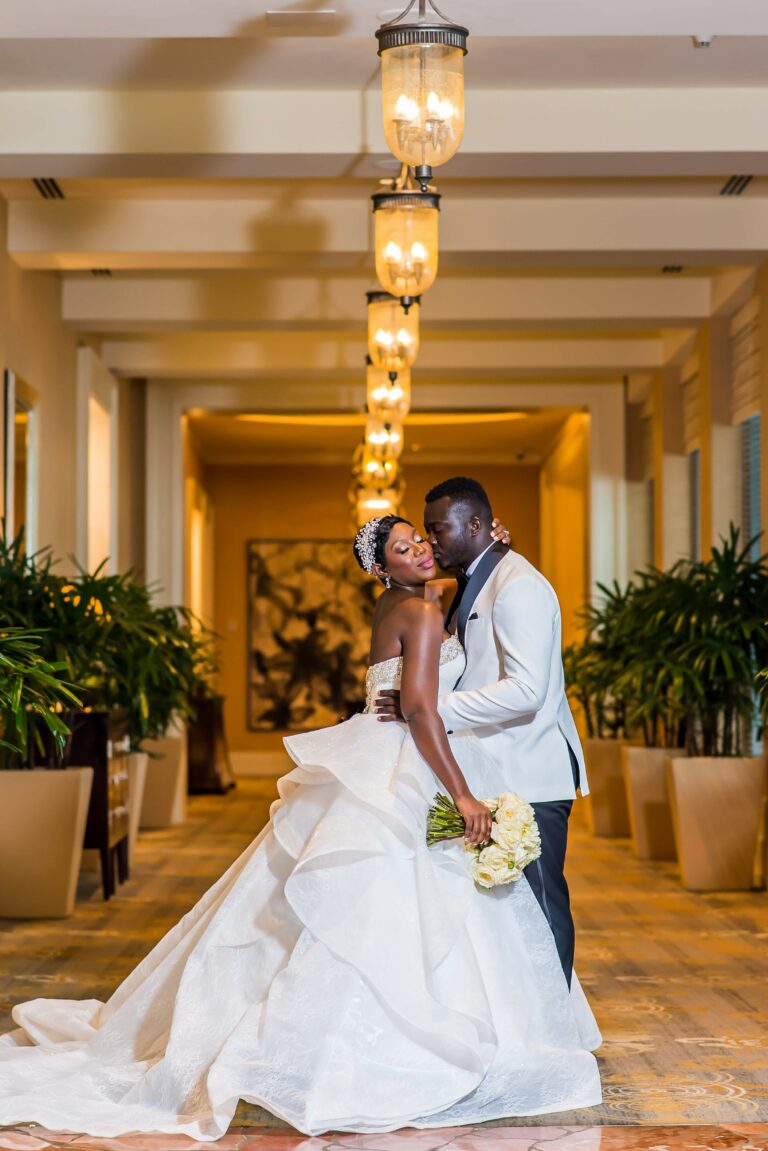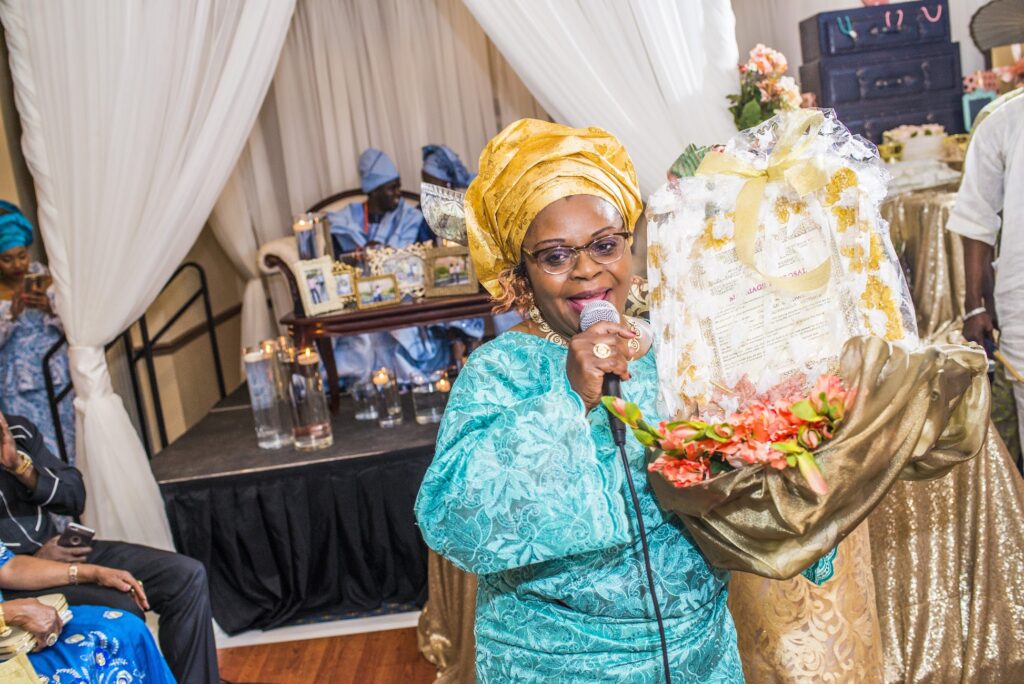
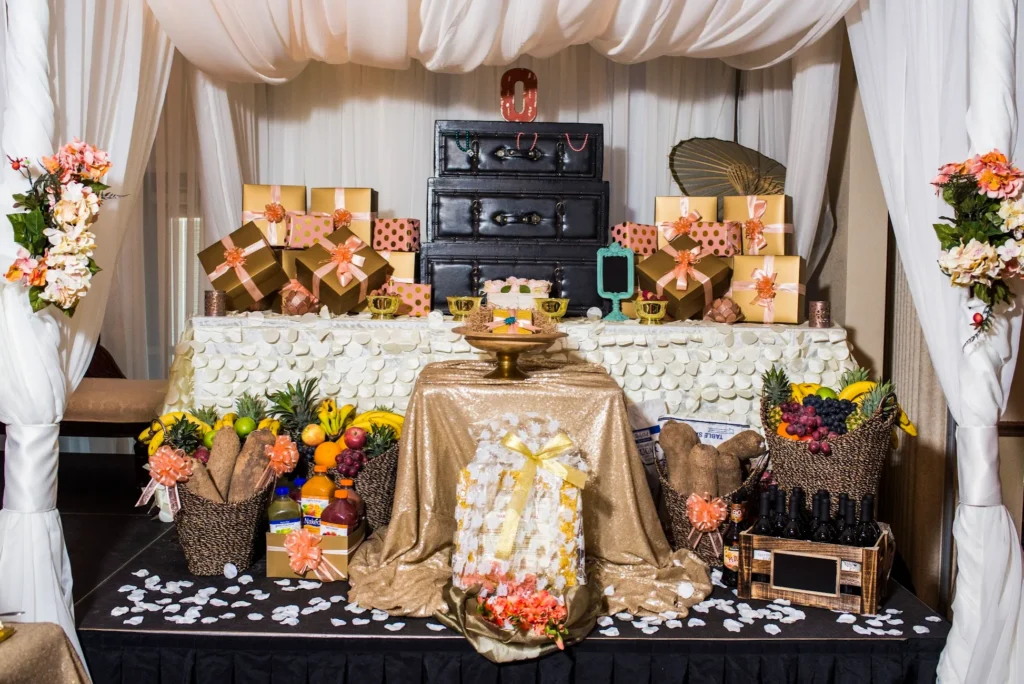
Yoruba weddings are a beautiful celebration of culture, love, and tradition. Each ceremony serves as a vibrant display of the rich Yoruba heritage, with symbolic rituals and customs that hold deep cultural meaning. Among these, the Eru Iyawo, Proposal Letter, and Acceptance Letter play significant roles in uniting two families and solidifying the bond between the bride and groom.
In this blog post, we’ll explore these three integral aspects of Yoruba wedding traditions, their historical significance, and how they’ve evolved to fit into modern celebrations. If you’re planning a Yoruba wedding or simply curious about the beauty of Yoruba culture, this guide will provide insights on these 3 elements.
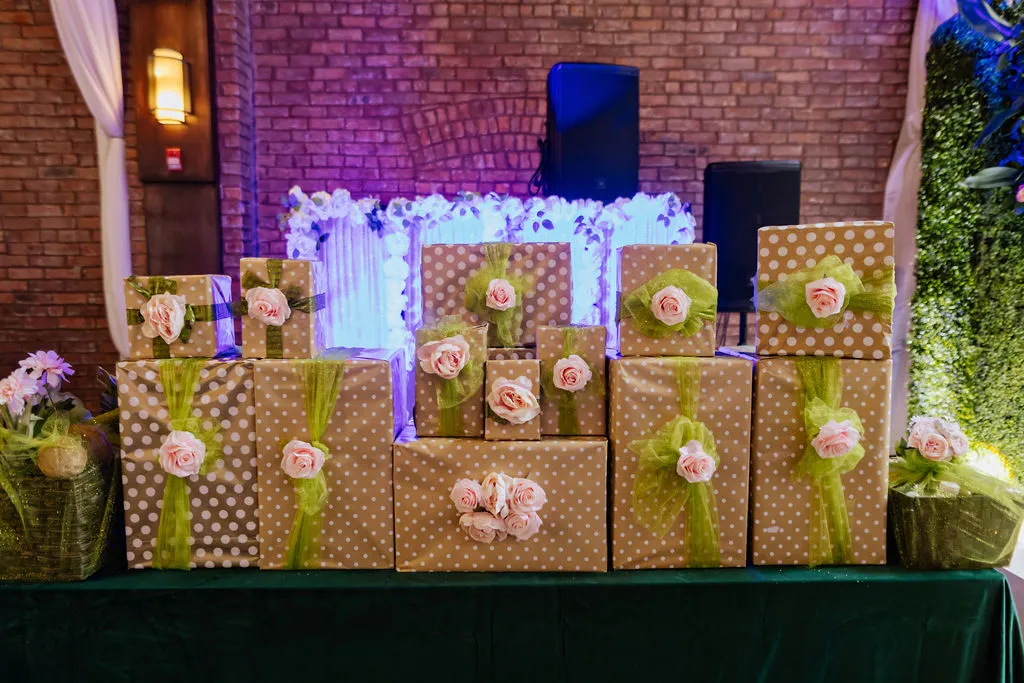
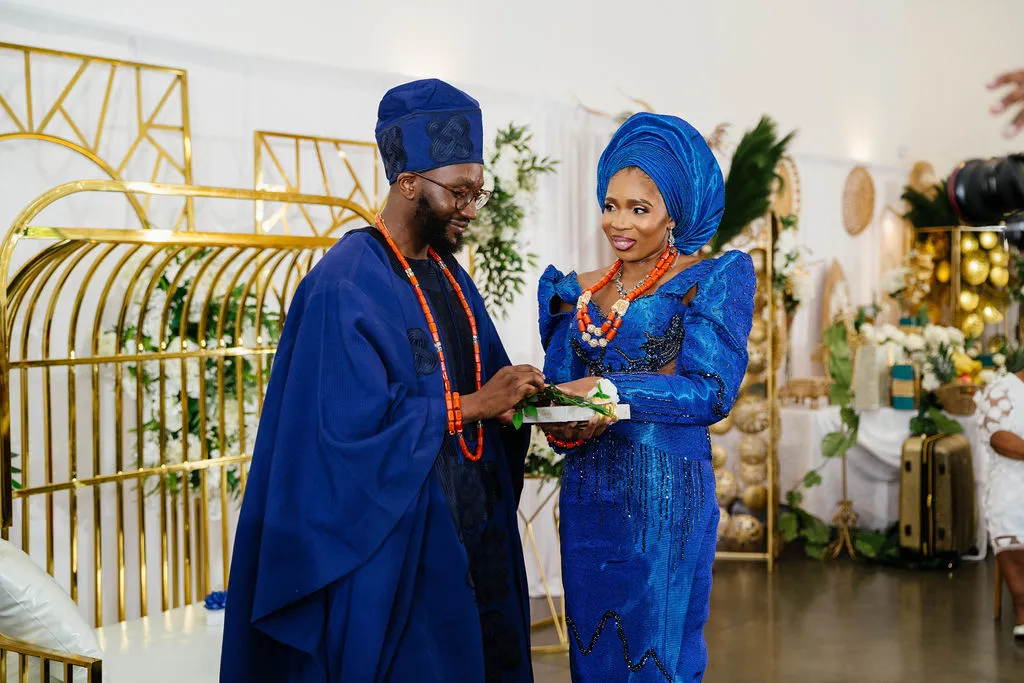
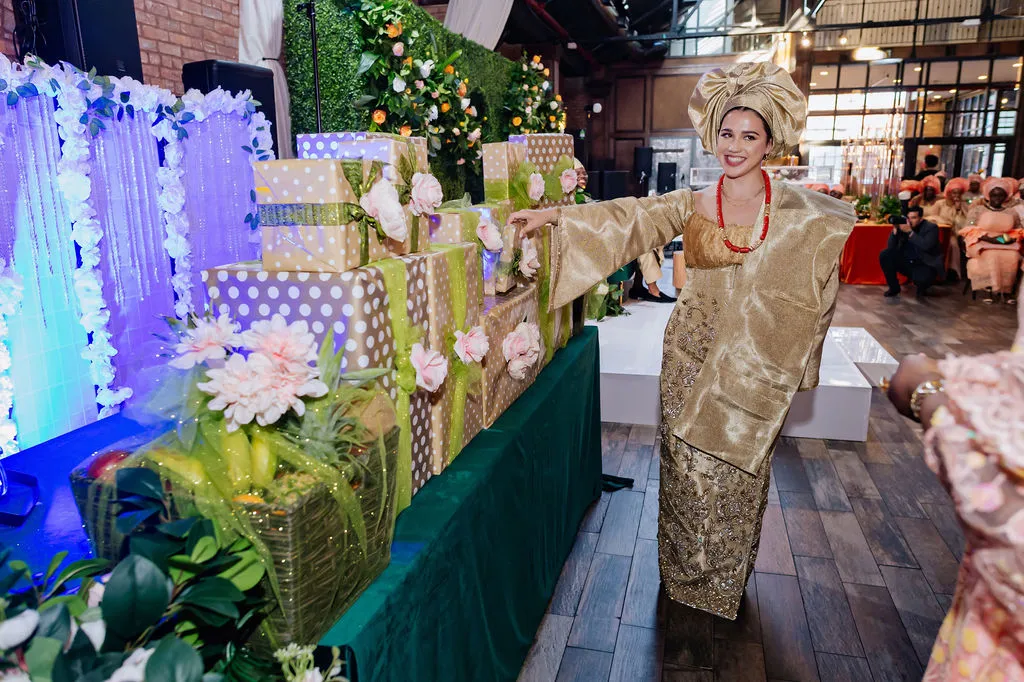
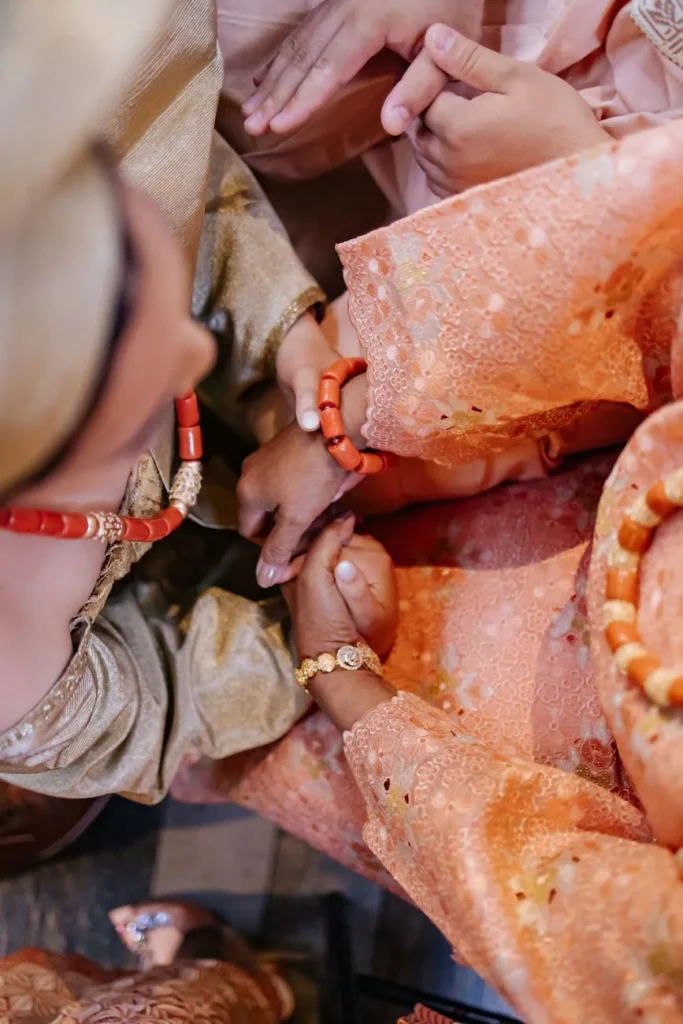
Understanding Yoruba Wedding Traditions
Yoruba Acceptance Ceremonies: A Prelude to Marriage
The acceptance ceremony is one of the most important stages of a Yoruba wedding. This event symbolizes the union of two families, emphasizing love, respect, and shared values. The ceremony is steeped in tradition, with every aspect—from the eru iyawo to the proposal and acceptance letters—contributing to the cultural richness.
During this ceremony, both families come together to celebrate and formalize the acceptance. It’s more than just a formality; it’s a public declaration of love, commitment, and familial unity.
Why These Traditions Matter
In Yoruba culture, these traditions uphold family values and preserve the heritage passed down through generations. Each element—whether it’s the lavishly presented eru iyawo, the carefully written proposal letter, or the warmly accepted acceptance letter—reflects the respect and care that Yoruba people have for marriage and cultural identity.
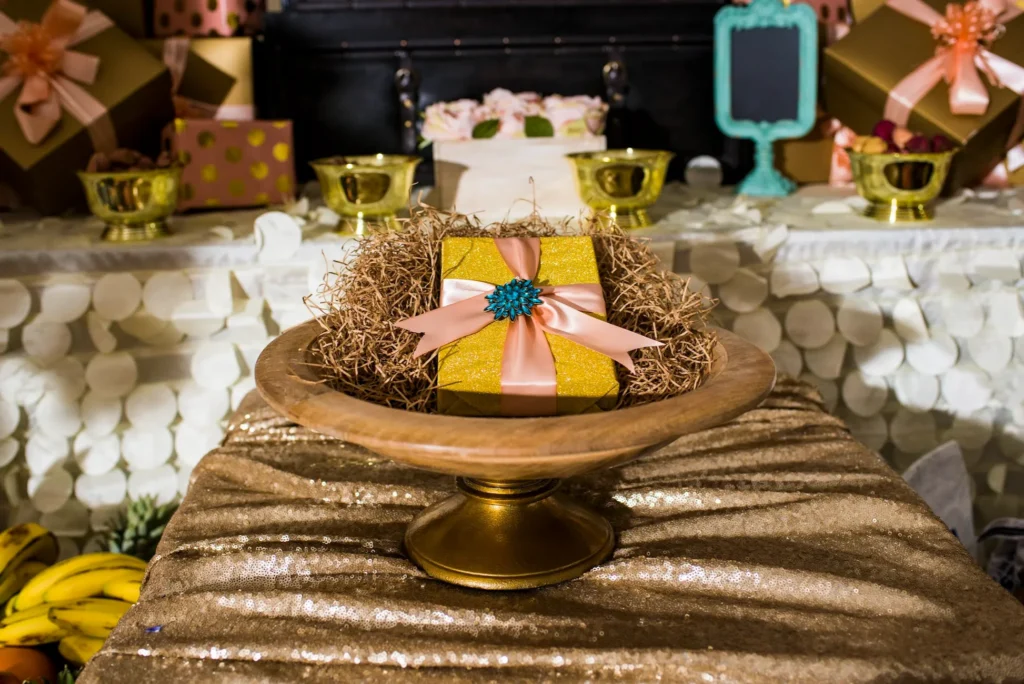
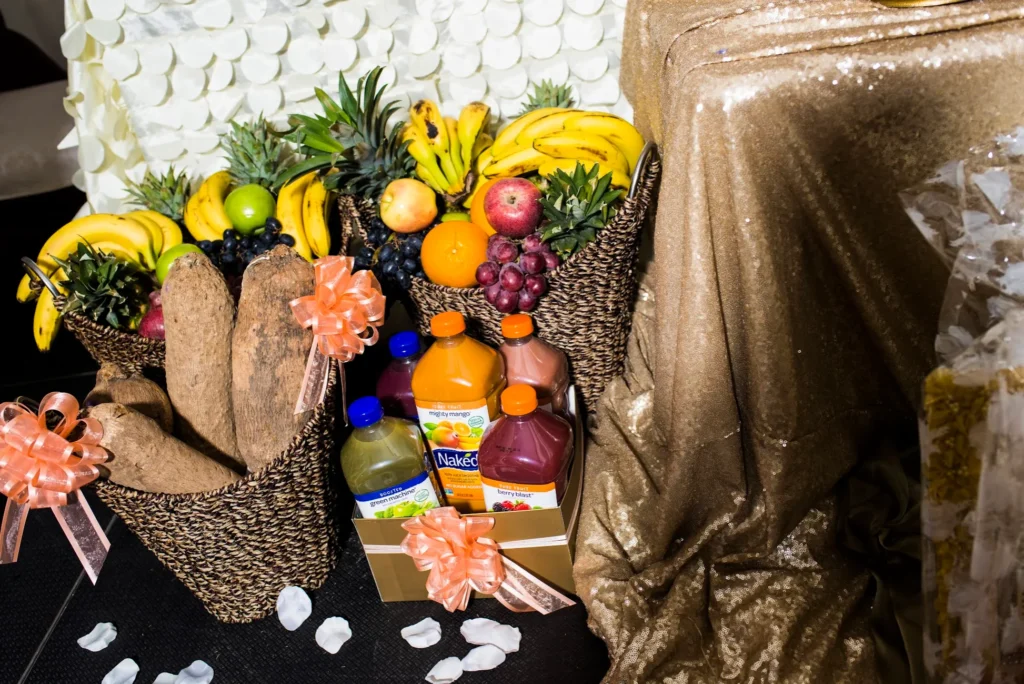
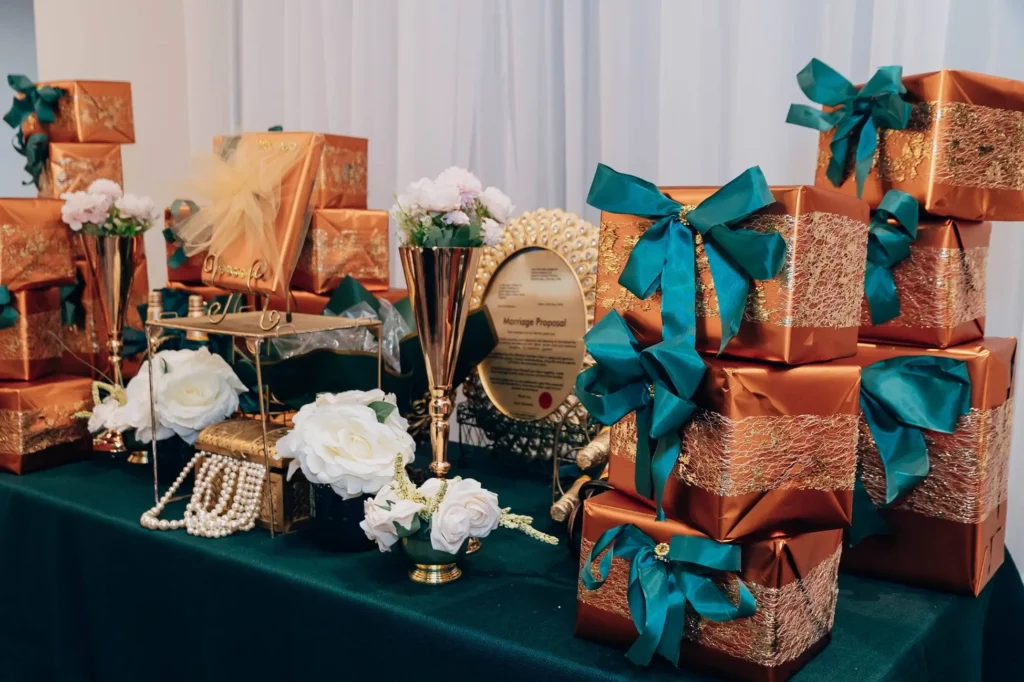
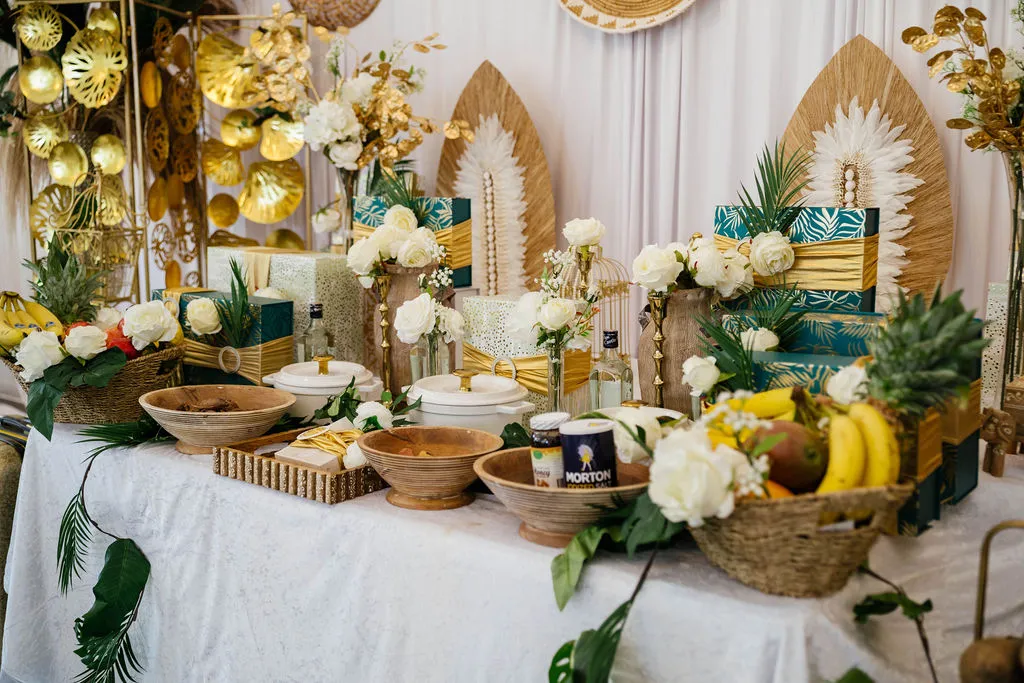
What is Eru Iyawo?
a. Definition and Cultural Meaning
Eru Iyawo translates to “the bride’s gifts” in Yoruba culture. It is a collection of items carefully chosen by the groom’s family. The groom’s family presents the items to the bride’s family as a gesture of love, respect, and goodwill. These gifts symbolize the groom’s readiness to care for his bride in many ways.
b. The Traditional Items in Eru Iyawo
The items included in the Eru Iyawo vary, but they often include:
- Food: Yams, rice, palm oil, salt, sugar, and other staples, representing abundance and sustenance.
- Clothing: Fabrics such as aso oke, ankara, or gele, symbolizing beauty and elegance.
- Jewelry and Perfumes: Representing luxury and care for the bride.
- Other symbolic items: Kola nuts, alligator pepper, and honey for sweetness and blessings in the marriage.
- Envelopes: individual envelopes with cash in them for specific members of the bride’s family. The individuals who the cash is for will be listed on the eru iyawo list provided by the bride’s family
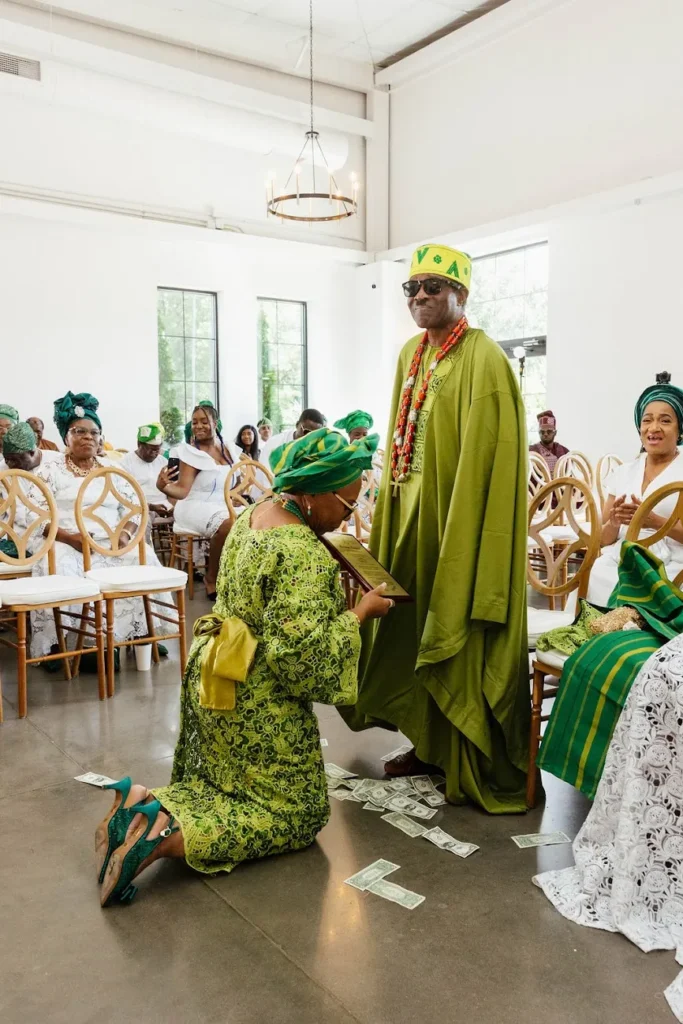
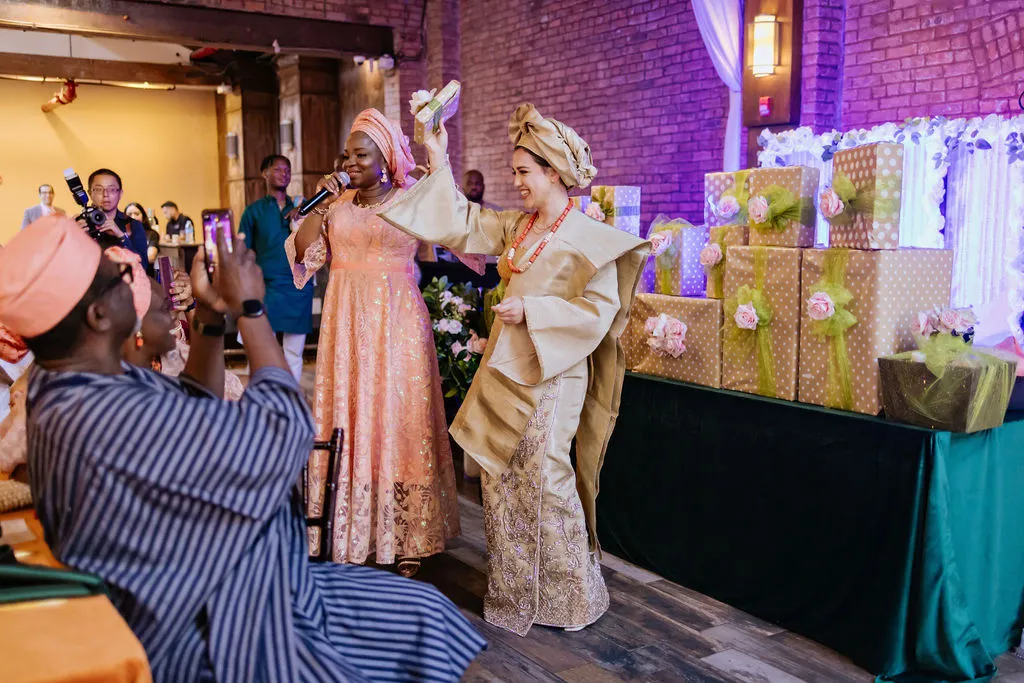
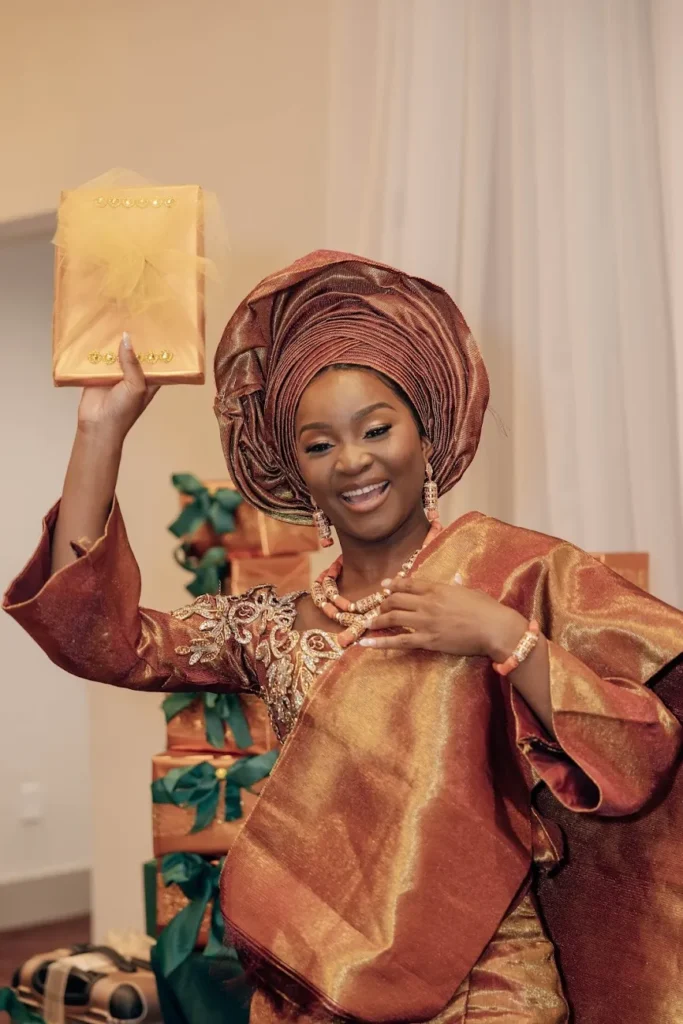
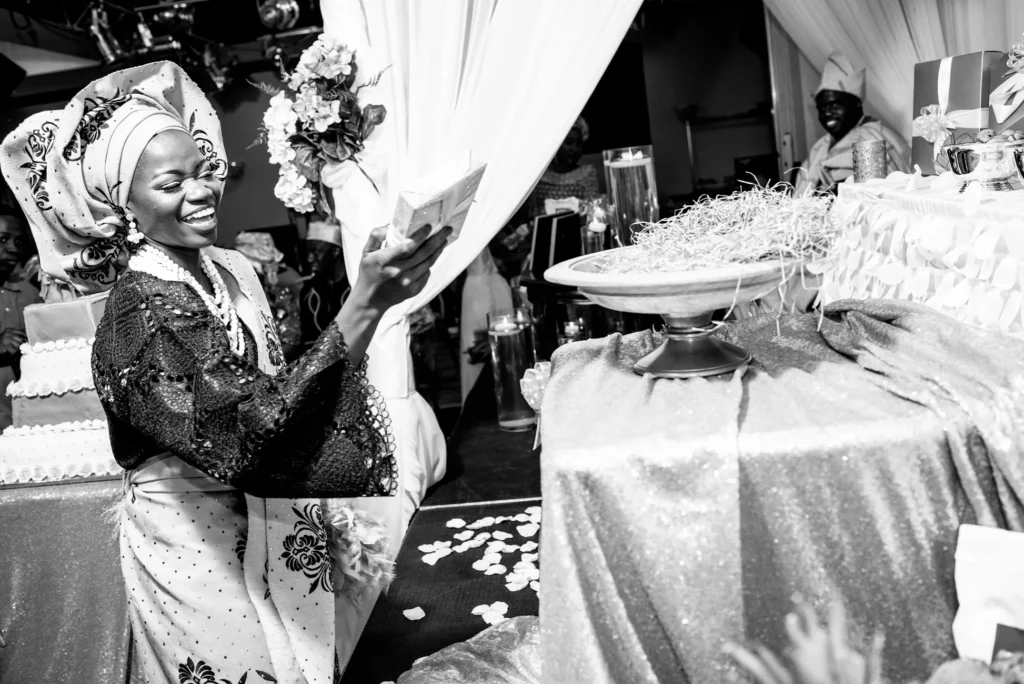
Incorporating Creativity into the Presentation
The Eru Iyawo is not just handed over casually; it is meticulously packaged in decorative baskets or boxes, reflecting the groom’s family’s respect for the bride’s family. These gifts are presented with a sense of ceremony, often accompanied by music, dancing, and prayers.
The way you present the eru iyawo is important. Yoruba culture celebrates beauty and elegance, so make sure your presentation leaves a lasting impression:
- Decorative Elements: Use ribbons, beads, or traditional fabrics to decorate the gift boxes and envelopes.
- Modern Calligraphy: For the letters, consider using elegant fonts or even handwritten calligraphy on decorative paper or scrolls. This adds a modern yet personal touch.
- Unique Packaging: Beyond traditional baskets, you can use customized wooden boxes or acrylic trays with Yoruba-inspired designs. These modern alternatives honor tradition while adding a creative flair.
- Presentation Ceremony: On the acceptance day, ensure the gifts and letters are handed over in a ceremonial manner, often accompanied by traditional drumming, songs, and dances, to add to the celebratory atmosphere.
By carefully curating your gifts, writing meaningful letters, and enhancing the presentation, you’ll not only honor the Yoruba wedding tradition but also create a memorable experience for both families and guests. These elements show thoughtfulness, respect, and pride in the rich Yoruba culture.
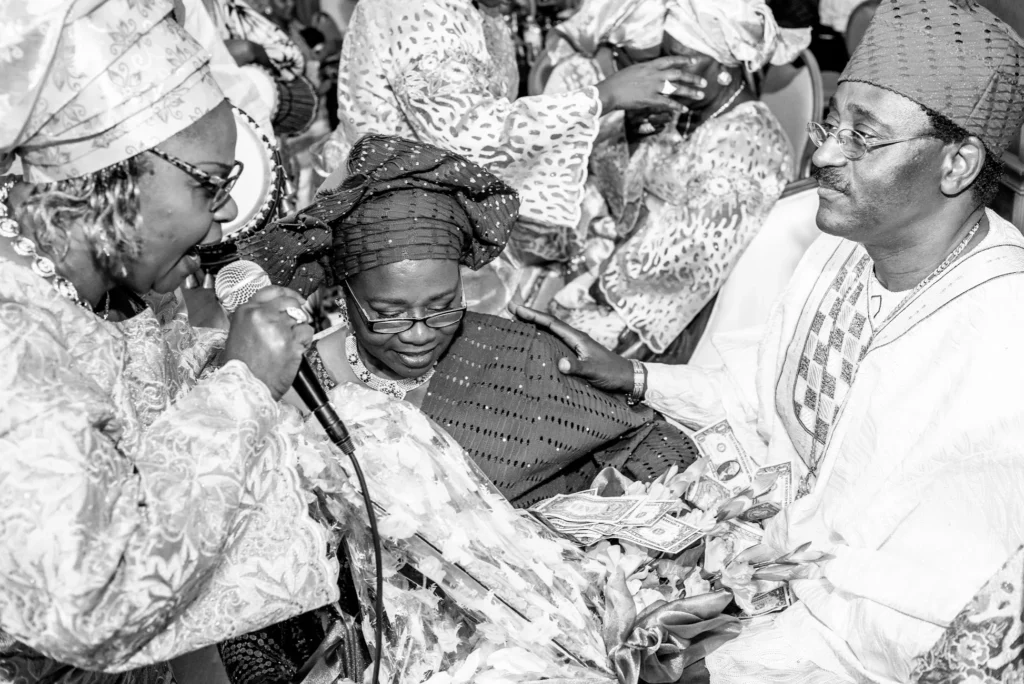
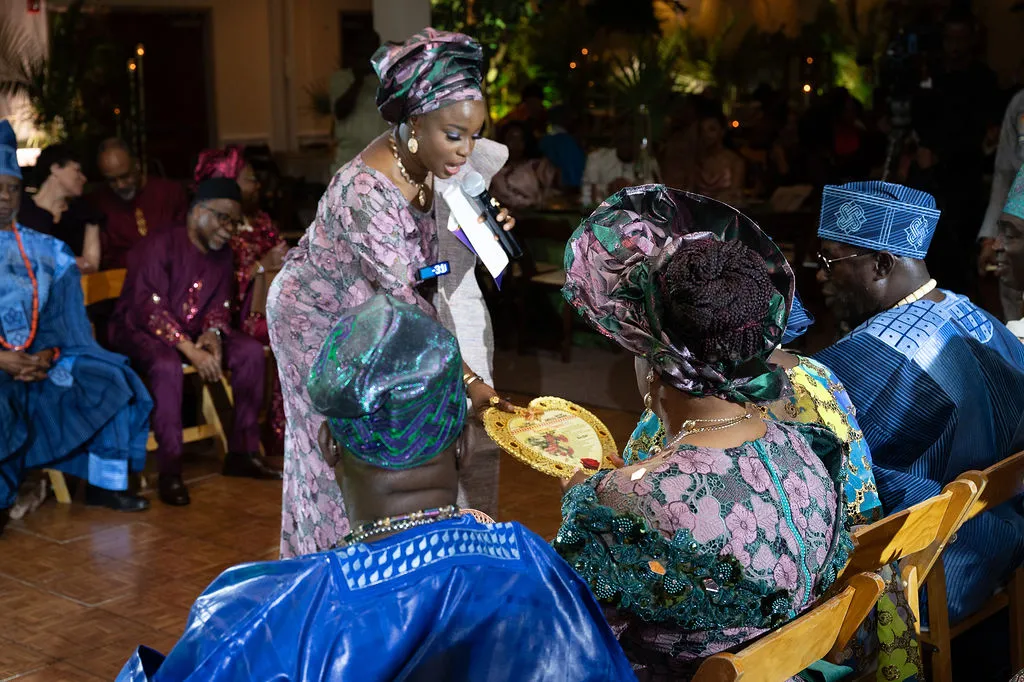
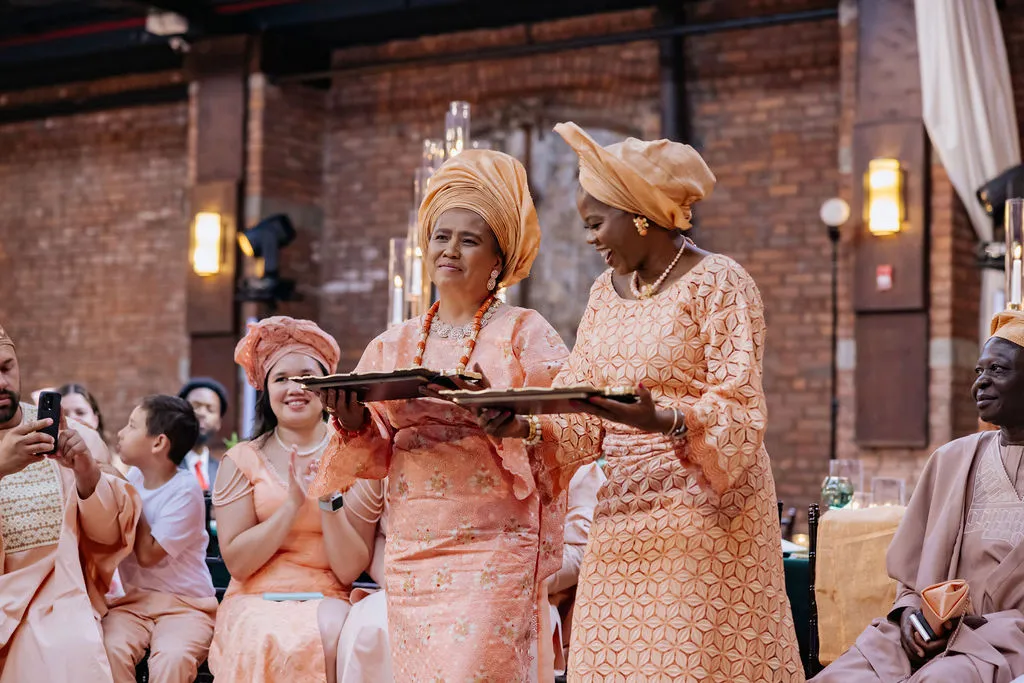
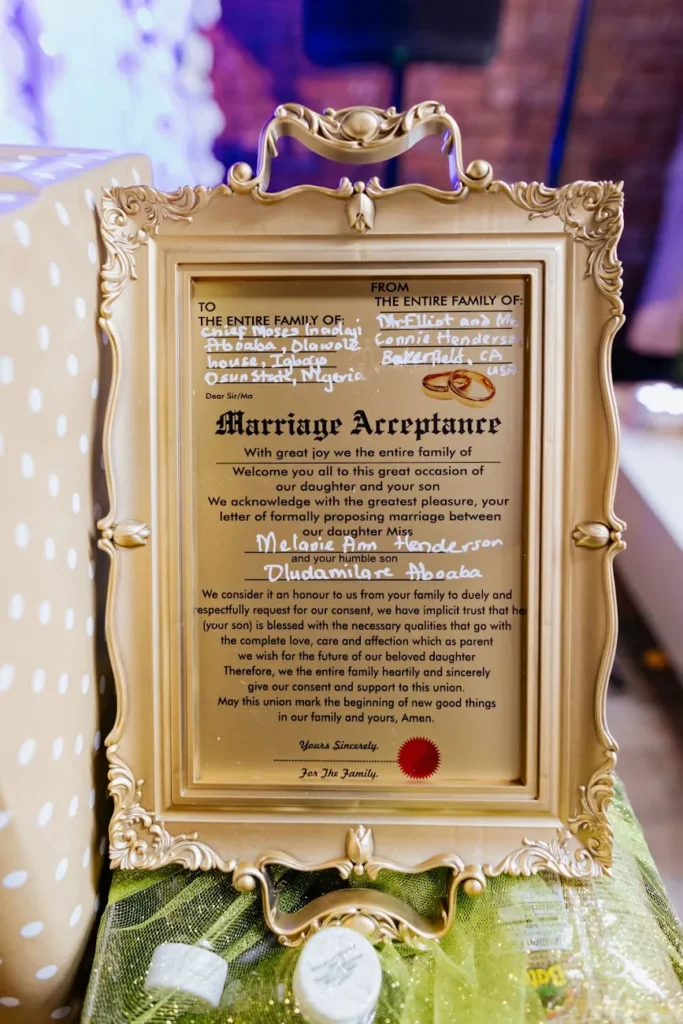
The Proposal Letter: An Invitation to Begin the Wedding Journey
a. What is a Proposal Letter in Yoruba Weddings?
The Proposal Letter is a formal document written by the groom’s family to the bride’s family, officially requesting the bride’s hand in marriage. It is a foundational aspect of a Yoruba wedding tradition, symbolizing respect and the beginning of a new relationship between the two families.
b. Structure and Presentation of the Proposal Letter
The Proposal Letter is often handwritten or printed on beautiful, culturally inspired stationery.
It typically includes:
- An introduction of the groom.
- A heartfelt request for the bride’s hand in marriage.
- Words of appreciation and blessings.
This letter is ceremoniously delivered by representatives of the groom’s family during the acceptance ceremony and is read aloud to all present by the youngest person in the bride’s family.
c. Symbolism of the Proposal Letter
The Proposal Letter represents the seriousness of the groom’s intentions and the honor he holds for the bride and her family. Its public reading emphasizes transparency and joy between the two families.
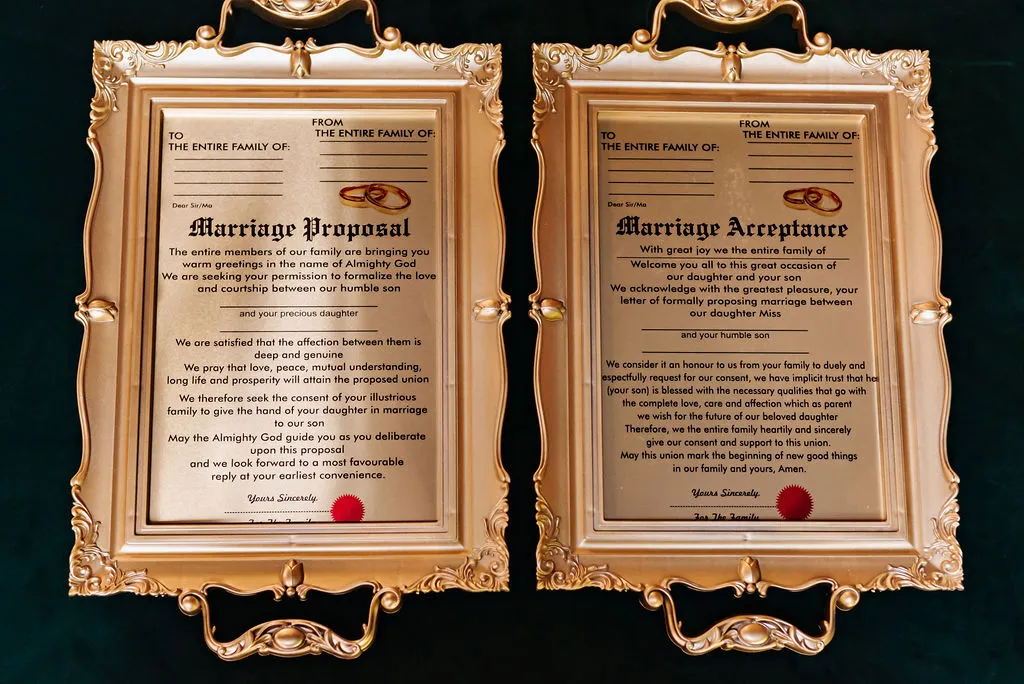
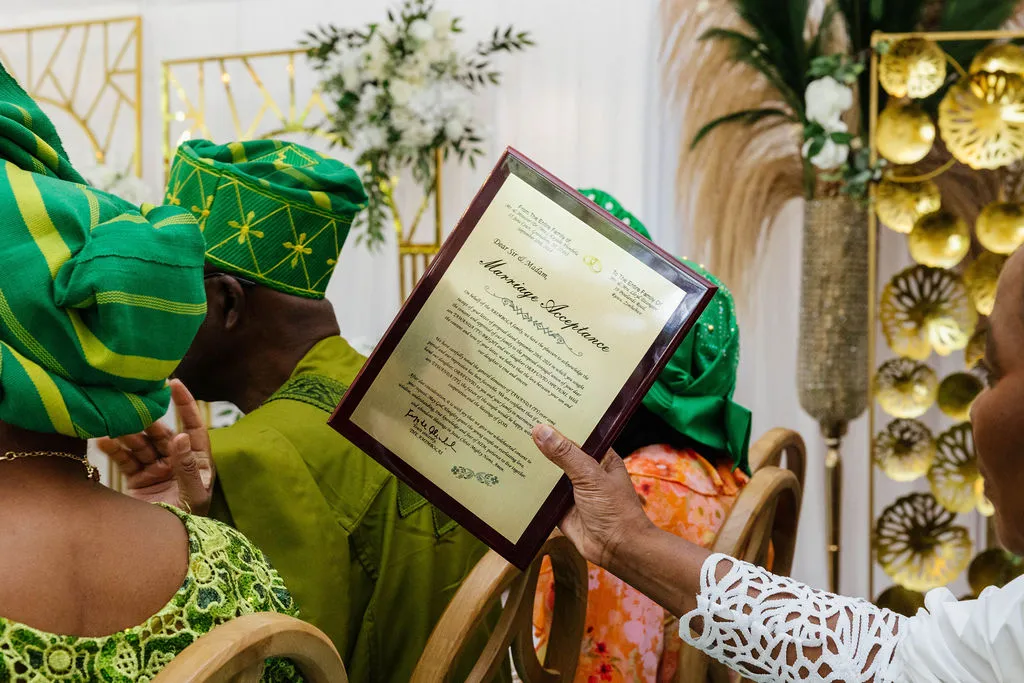
The Acceptance Letter: A Formal Acceptance of Love
a. What is an Acceptance Letter?
The Acceptance Letter is the bride’s family’s formal response to the groom’s Proposal Letter. It signifies their acceptance of the groom’s proposal and their blessings for the union.
b. Contents of the acceptance Letter
The Acceptance Letter typically includes:
- A gracious reply to the proposal letter.
- Words of gratitude for the gifts (eru iyawo).
- Good wishes for the couple’s future together.
c. Role of the Acceptance Letter in Yoruba Weddings
The Acceptance Letter officially seals the agreement between the two families. It is often presented and read aloud at the acceptance ceremony, marking a joyful milestone in the wedding journey.
d. Presentation of the acceptance Letter
The bride’s family delivers the Acceptance letter in a similarly ceremonial manner, often accompanied by prayers, songs, and jubilant expressions of joy.


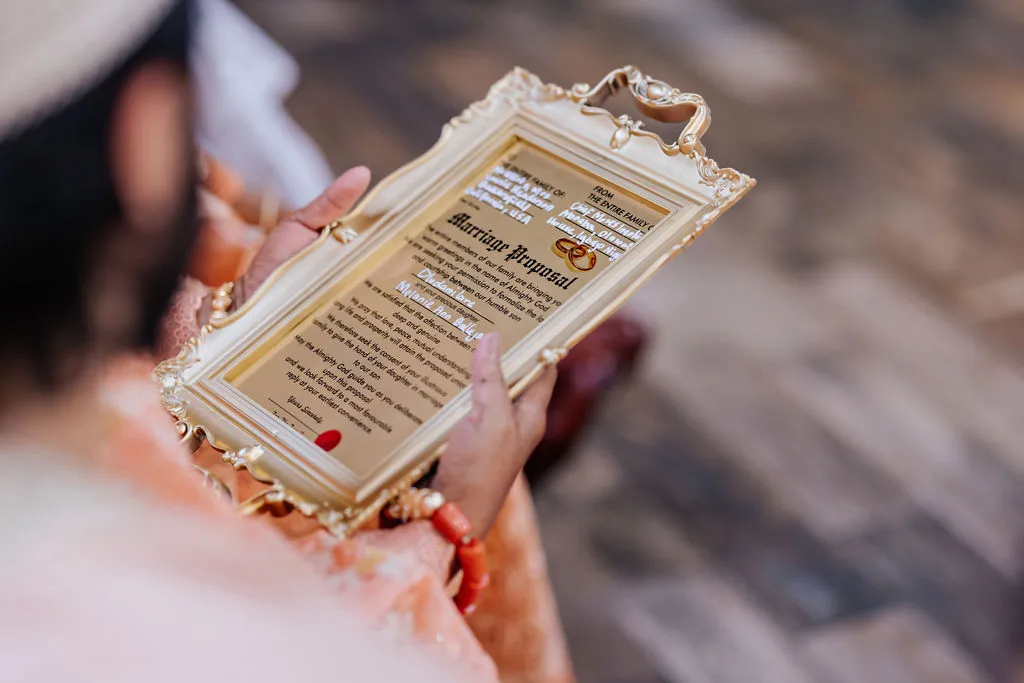
The Flow of Events: Connecting Eru Iyawo, Proposal Letter, and Acceptance Letter
Integration of Traditions in the Yoruba Acceptance Ceremony
The eru iyawo, proposal letter, and acceptance letter are beautifully interconnected during the acceptance ceremony. Typically, the sequence flows as follows:
- The groom’s family presents the Eru Iyawo as a sign of respect and goodwill.
- The Proposal Letter is read aloud by the groom’s family.
- The bride’s family responds with the acceptance letter, sealing the agreement.
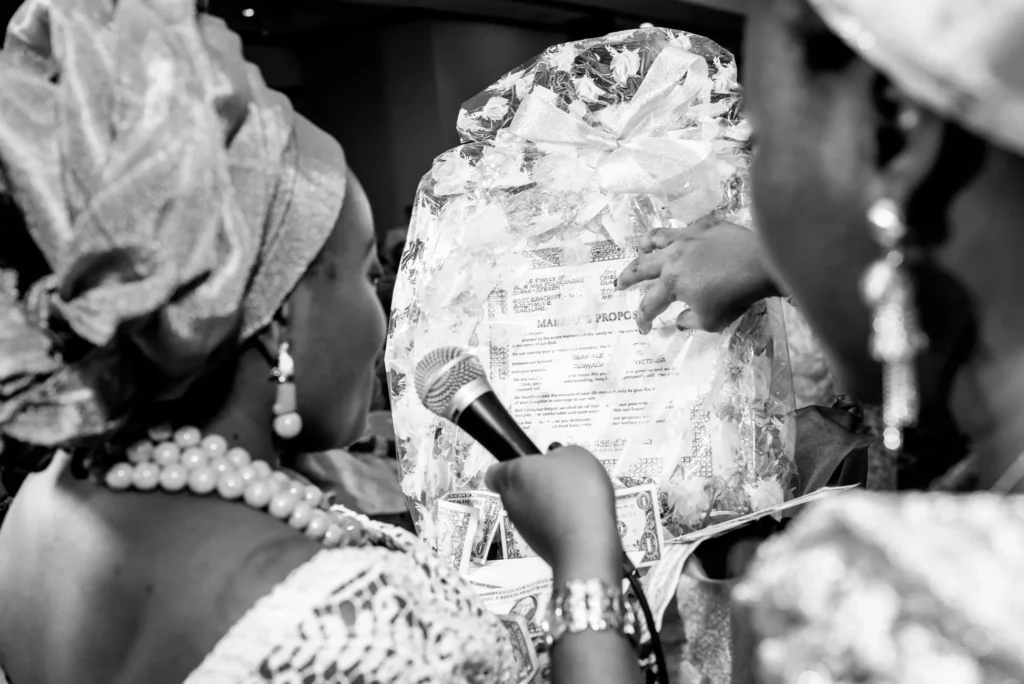
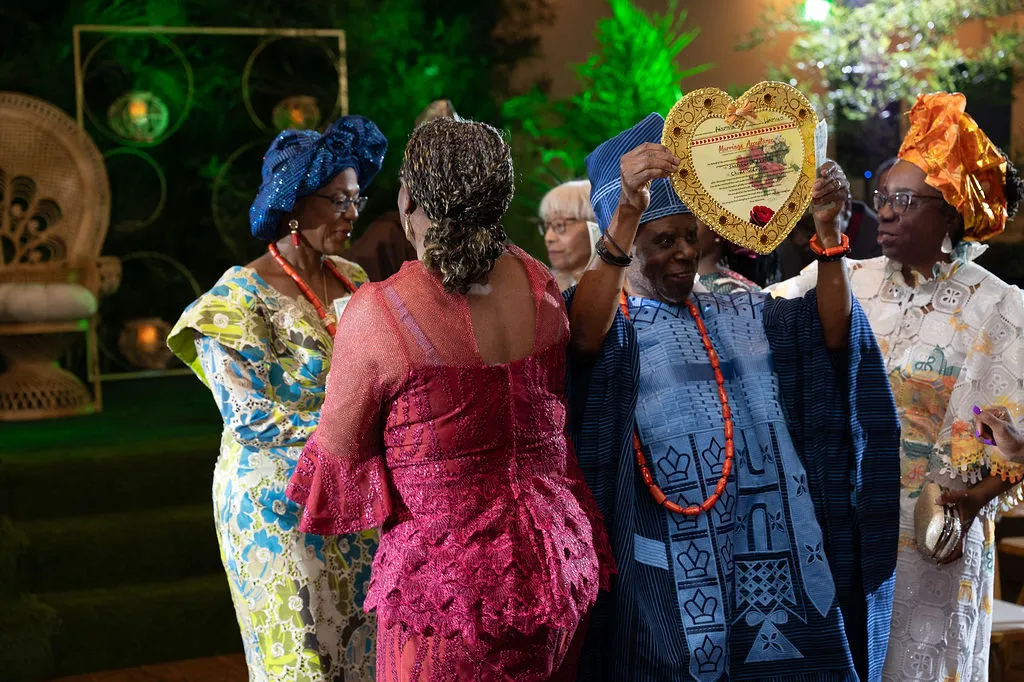
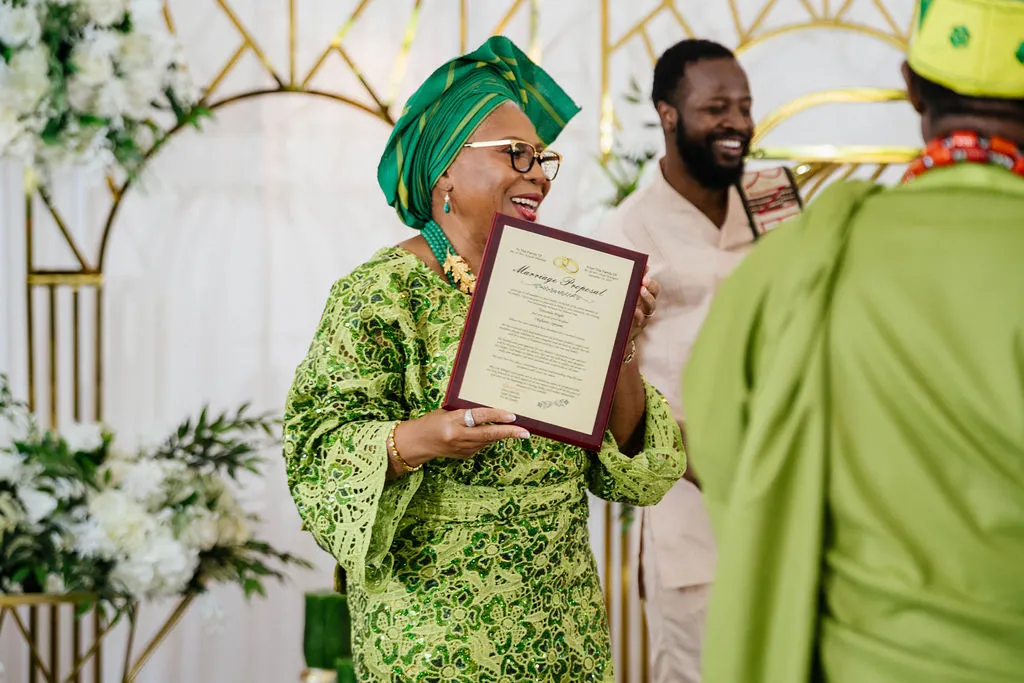
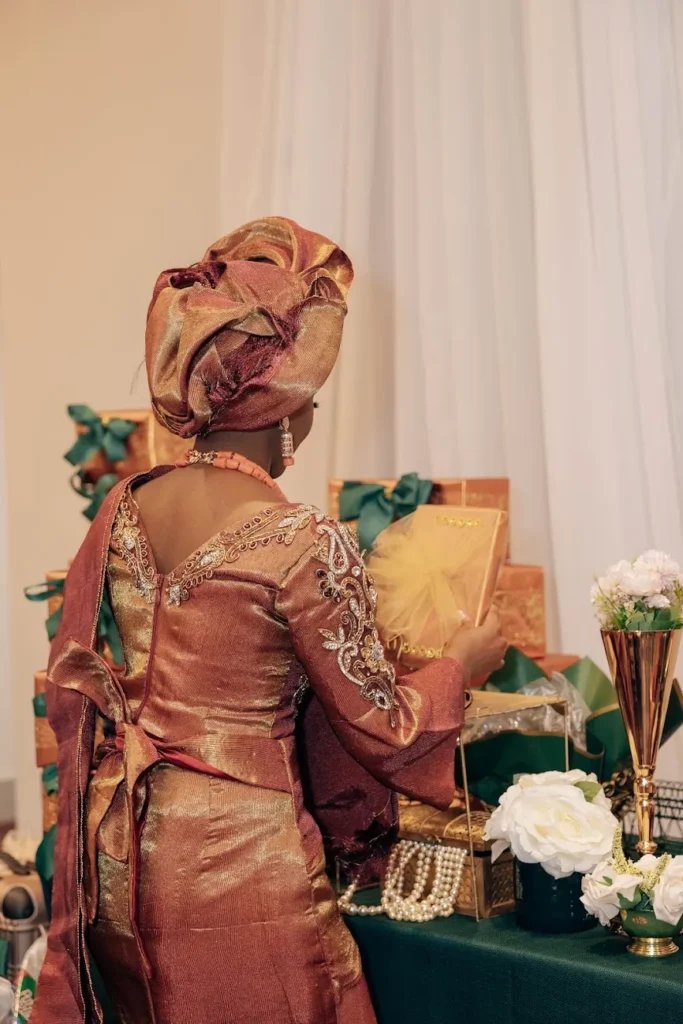
Why These Traditions Matter
Preserving Yoruba Culture
The eru iyawo, proposal letter, and acceptance letter play a vital role in keeping Yoruba culture alive, ensuring future generations appreciate the beauty of their heritage.
Strengthening Family Bonds
These traditions emphasize respect and unity, laying the foundation for a strong bond between the two families.
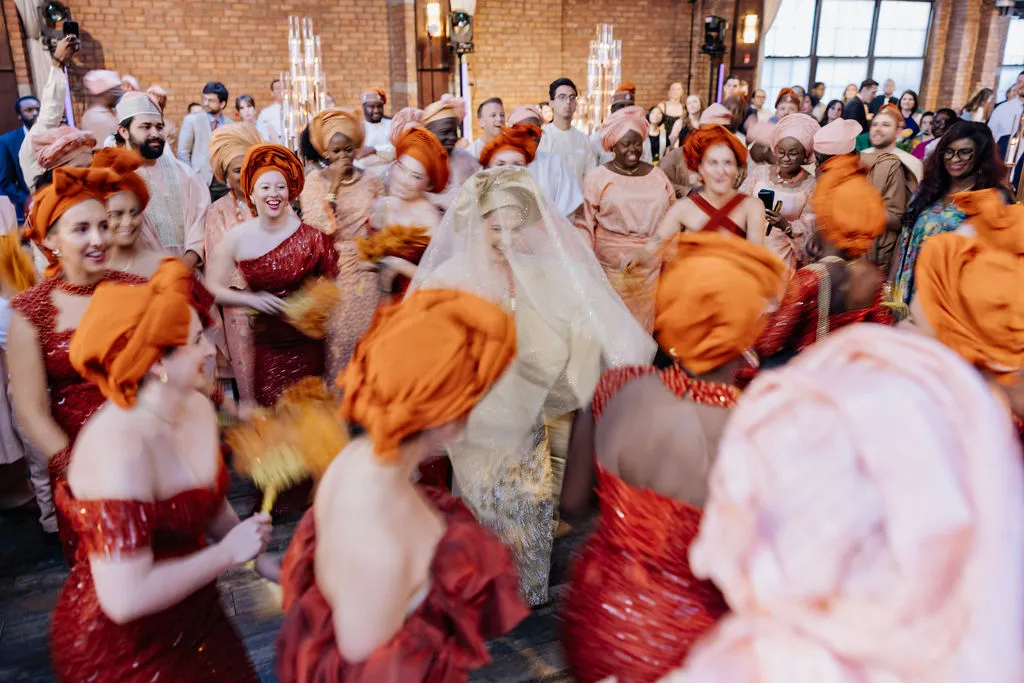
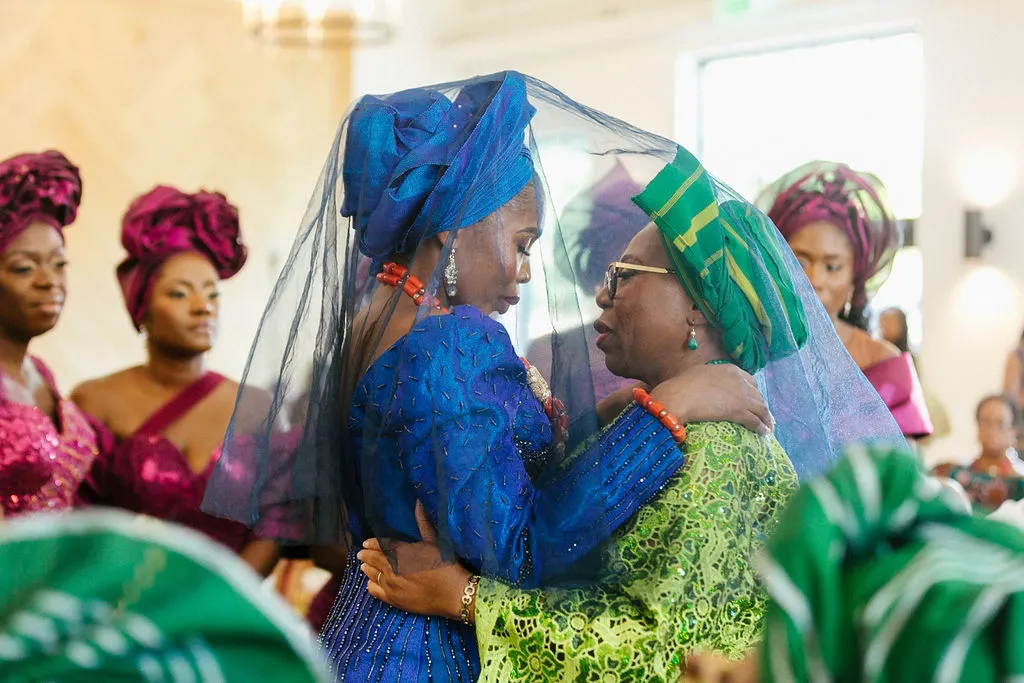
The Eru Iyawo, Proposal Letter, and Acceptance Letter are much more than ceremonial elements; they are the heart of Yoruba wedding traditions, rich with meaning and cultural significance. Whether you’re embracing these customs in their traditional form or adding a modern twist, these practices ensure your wedding is deeply rooted in heritage and love.
Planning a Yoruba wedding in the U.S.? Let us help you seamlessly incorporate these cherished traditions into your special day, or explore our Ultimate Guide to Nigerian Wedding Traditions for Yoruba Weddings on the blog!







